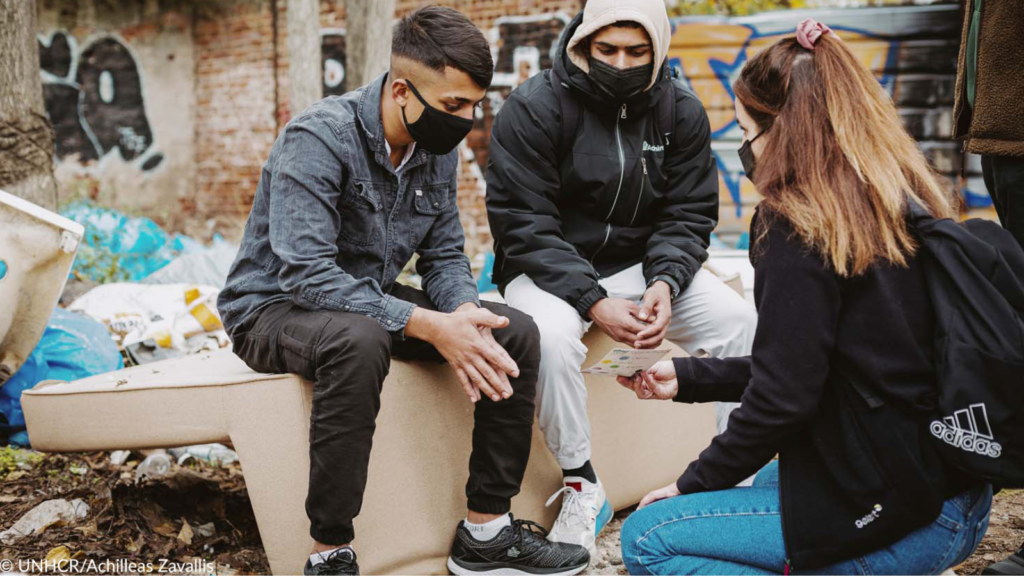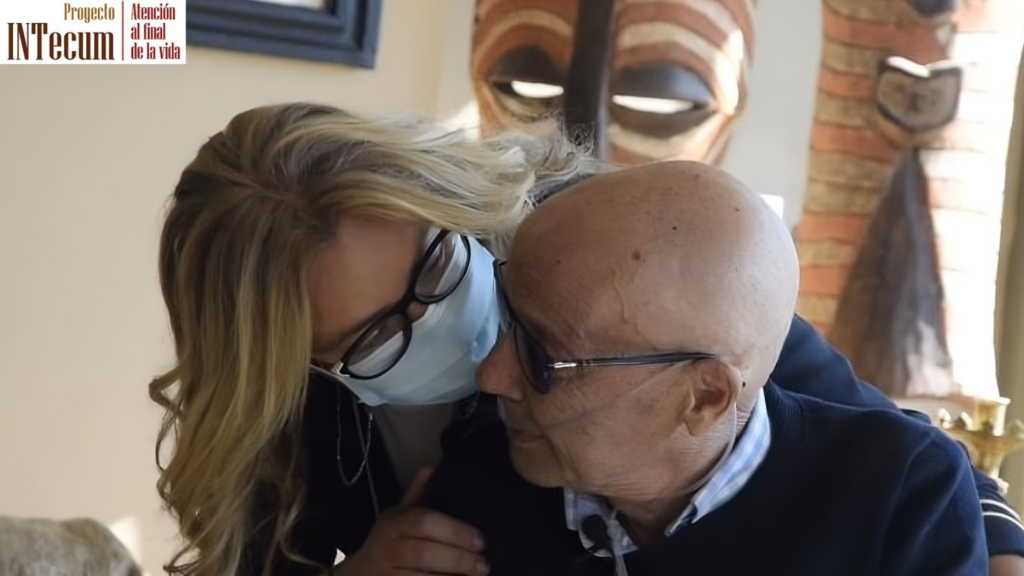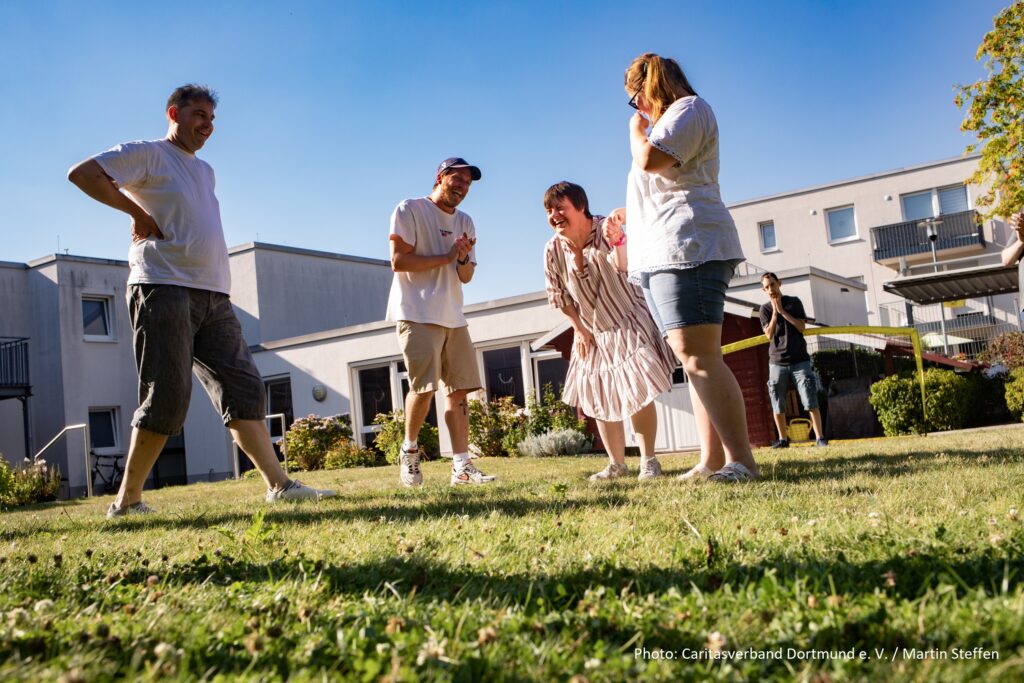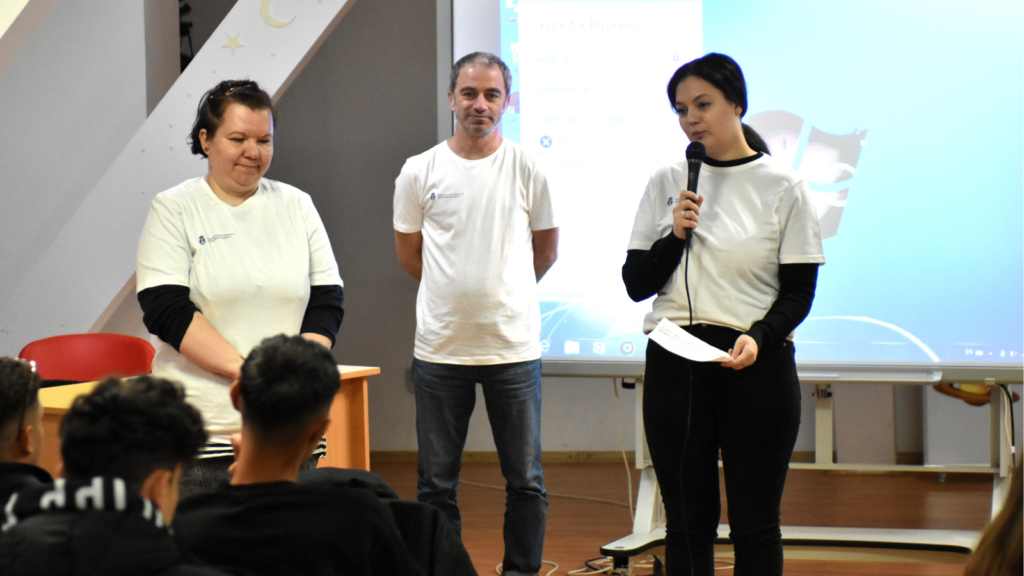Central to building strong and sustainable inclusive communities is to ensure there is coordination between public and private organisations, service providers, and the persons they support. This Award honours co-creation and collaborative approaches that ensure all relevant stakeholders in the community are represented and included in decision making processes in the development and delivery of social programmes.
Deinstitutionalisation and Reform of the Care System for Young Children
Organisation: Hope and Homes for Children – Bulgaria
Country: Bulgaria
Website: https://www.hopeandhomes.org/what-we-do/where-we-work/bulgaria/

Hope and Homes for Children in Bulgaria tackles the challenge of deinstitutionalising services for children by creating District Deinstitutionalisation Coordination Mechanisms (DDICM). These mechanisms enhance inter-institutional cooperation, fostering communication and effective regulation to support national deinstitutionalisation efforts, including the initiative to close eight institutions for children aged 0-3 nationally, transitioning to family and community-based care. The DDICM strengthens institutional relationships, empowers families, and shapes local NGOs’ involvement to prioritise the child’s best interests. Despite initial challenges, its collaborative approach, supported by training and technical support, has proved effective. The project has been implemented in 21 of 28 regions, held 176 training sessions, trained 200 staff, and addressed 105 complex cases, earning national recognition for its positive impact on child welfare.
National Emergency Response Mechanism (NERM)
Name of Organisation: Ministry of Migration and Asylum
Country: Greece
Website: https://migration.gov.gr/en/grammateies/geniki-grammateia-evaloton-politon-kai-thesmikis-prostasias/
The National Emergency Response Mechanism (NERM) was launched to tackle the growing challenge of protecting unaccompanied children arriving in Greece, particularly those at risk of homelessness or exploitation. NERM operates by working with public services, NGOs, and international organisations to deliver emergency housing, legal assistance, and psychological support. Through its coordinated efforts, NERM ensures that vulnerable children are quickly identified and integrated into the child protection system. Since 2021, NERM has successfully supported thousands of unaccompanied children, significantly enhancing their access to vital services, handling 11,888 communications and completing 6,526 placements.

INTEcum
Organisation: Regional Government of Castilla y Leon – Department for Social Services
Country: Spain
Website: https://serviciossociales.jcyl.es/web/es/servicios-sociales.html

INTEcum addresses the challenge of providing comprehensive care for individuals with advanced or terminal illnesses, including patients with terminal neurodegenerative disorders, in Castilla y León. The project delivers personalised and flexible support, enabling individuals to remain in their own homes while receiving integrated health and social care tailored to their specific needs. This holistic approach addresses the physical, emotional, spiritual, and social aspects of care, supporting both patients and their families. Effective coordination between public and private organisations, service providers and the people they support was crucial to the initiative’s success. INTEcum has supported over 1,700 individuals, setting a new benchmark for home-based care.
Together for an Inclusive City: The Work of the Coordination Committee
Organisation: Coordination Committee for Social Participation in the City of Dortmund
Country: Germany
Website: https://www.dortmund.de/
The Coordination Committee for Social Participation in Dortmund addresses the challenges of implementing the UN Convention on the Rights of Persons with Disabilities at a local level by improving access to housing and support services through its participation-oriented social planning approach. It brings together disability service providers, municipal authorities, and local disability representatives to create and enhance inclusive living environments. By coordinating efforts and developing new community-based solutions, the Committee addresses gaps in barrier-free housing and support. The Committee represents the interests of more than 5,800 children, youth and adults with disabilities who receive integration assistance. Its work is dedicated to ensuring that people with disabilities can live independently and participate fully in society.

Be Safe, Be Cool in Your School
Organisation: 6th District General Directorate for Social Assistance and Child Protection, Bucharest
Country: Romania
Website: https://www.asistentasociala6.ro/

The project Be Safe, Be Cool in Your School addresses the increasing problem of violence against children in Bucharest’s 6th District. This initiative empowers children, parents, and professionals to actively combat bullying and violence through impactful workshops and targeted awareness campaigns. By fostering collaboration between the local authority, NGOs, and schools, the project creates a united front against violence, ensuring a safer and more inclusive environment for all children. The project has impacted over 1,000 children, with a significant increase in reporting violence and the involvement of professionals.
The CuidAs Strategy: A Framework for Transforming Long-Term Care Cooperatively
Organisation: Regional Ministry of Social Rights and Welfare (Principado de Asturias)
Country: Spain
Website:http://www.asturias.es/
The CuidAs Strategy is an initiative led by the regional administration that addresses the challenge of reforming long-term care (LTC) for adults in Asturias, Spain. It leads the change from an institutionalised model to a community-based approach, allowing people who need care to live independently in their communities. It integrates an action plan with 105 measures, a quality framework and the CuidAs network, fostering collaboration between public services, care providers, local communities, associations and professional groups. Currently more than 500 members make up the network, 150 services are in the process of change and 39 innovative projects are already underway. The measures implemented have enhanced the quality of life for persons with LTC needs across the region.

Youth Design Lisbon (JDL): Engaging Young People in Community Safety
Organisation: Lisbon City Council
Country: Portugal
Website: https://www.lisboa.pt

Youth Design Lisbon (JDL) is a unique initiative addressing juvenile delinquency in Lisbon by engaging adolescents aged 11-19 in designing solutions to reduce antisocial behaviour shown by young people and developing a tool to promote safe behaviours and positive lifestyles. Under the Horizon 2020 Project, Lisbon Municipal Police and youth workers mentor participants in identifying issues and creating solutions. The project not only encourages positive behaviour but also builds bridges between young people and police mentors, the local community and other authority figures, transforming intergenerational relationships and building more inclusive and safer communities. Feedback from the young people indicated increased trust towards police officers and youth workers. So far, 27 young people from different neighbourhoods have participated, with plans to expand further.
Together Strengthening the Participation of Vulnerable Children in Decision-Making
Organisation: SOS Children’s Villages International
Country: Austria
Website: https://www.sos-childrensvillages.org/together
This project empowers vulnerable children and young people to actively participate in public decision-making across Europe. By forming Child and Youth Advisory Boards and organising peer-led workshops, the project informs children of their right to participate, provides them with tools to express their views, and enables young participants to meet directly with public authorities and advocate for their rights. It aims to reach over 425 children and 150 decision-makers, ensuring that the voices of those at risk of social exclusion are heard and acted upon. Furthermore, an e-learning module and series of videos have been developed to remind public authorities of their duty to uphold children’s right to participate on all topics that affect them. The project promotes inclusive communities by bridging the gap between young people and decision-makers, fostering collaboration that leads to more child-centred policies.

